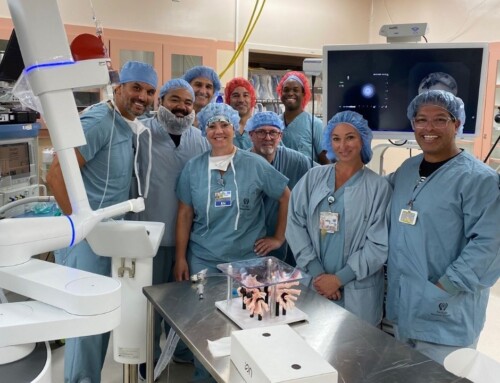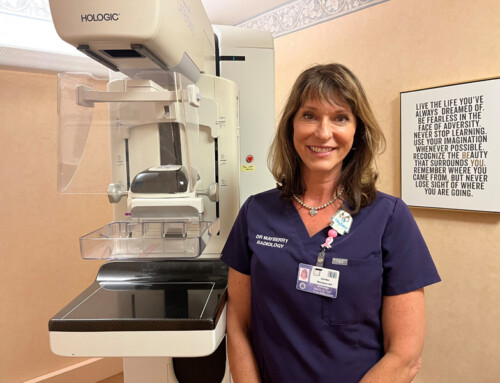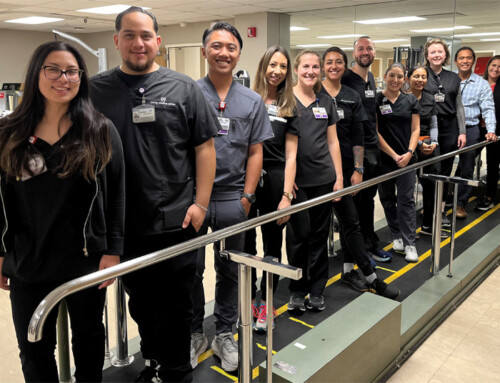 Doctors diagnose 95,000 new cases of colon cancer each year in the United States, according to the American Cancer Society. While genetics play a strong part in your chances of suffering from this disease, it’s not all doom and gloom. Making just a few dietary changes could be enough to lower your risk of colon cancer drastically!
Doctors diagnose 95,000 new cases of colon cancer each year in the United States, according to the American Cancer Society. While genetics play a strong part in your chances of suffering from this disease, it’s not all doom and gloom. Making just a few dietary changes could be enough to lower your risk of colon cancer drastically!
Years of research has shown that what you eat plays a huge role in your chances of developing colorectal cancer. A recent study indicates that a diet consisting of fruits, vegetables, and fish may offer the most protection against this disease — pescovegetarians were found to have a 45% reduced risk of cancer compared to nonvegetarians.
Why does diet have such a major impact? In large part, it’s because what you eat is essential to your immune system, and how well it can do its job to protect your body from chronic illness and disease.
Read on to learn which foods you can add to your diet, and which you should avoid, to nourish a healthy colon and protect against cancerous cells.
Dangerous Foods for Your Colon
Most of us choose meals based on flavor, rather than nutritional benefits. That’s likely because we get to enjoy the tantalizing taste of our food immediately, while the nutritional and health effects of our choices don’t show until far down the road.
It’s hard to keep in mind that the choices we make now will affect us in the future, especially when a plate of homemade cookies is sitting right in front of you. The more you understand how food impacts your body, the better you can arrange your eating habits to keep yourself healthy. Once you realize a consistent diet of sweet snacks can correlate to a lengthy hospital stay later, a tumor, or even cancer treatments, it becomes easier to resist going for that third or fourth cookie.
Here are some of the foods found to be risky for your colon health.
1. Fats
While there are “good fats,” like avocados and nuts, a high-fat diet that’s rich in saturated products and fast food can be disastrous for your colon. In a study on mice, researchers discovered that high-fat diets produce more intestinal stem cells, which can lead to intestinal tumors. The study found that a high-fat diet cultivated a 50% increase in body mass, as well as a greater risk of intestinal tumors.
2. Red Meats
Studies show that eating red meat too often can increase your risk of colon cancer. For those who don’t want to give up steak altogether, “too often” refers to more than one serving per day. If you aren’t too attached to burgers and other beef dishes, consider cutting back as much as possible. The consumption of red meat causes the release of chemicals in the body, which can inhibit the repair of genetic material. Plant-based diets are shown to have the lowest risk of colorectal cancer; you don’t have to become a full vegetarian, but the more vegetables you can add into your life, the better.
3. Alcohol
Alcohol isn’t just dangerous to the colon — it’s linked to seven types of cancer. It can be fun to enjoy a drink from time to time, but keep in mind that excessive alcohol consumption correlates with a higher risk of cancer in both the rectum and colon. The American Cancer Society recommends sticking to no more than one drink a day for women, and two drinks for men.
4. Sugar
They’re easy to reach for and hard to put down, making sweet snacks and desserts one of the most threatening offenders to your health. Strong research suggests that eating sugary snacks can increase your risk of colorectal cancer. After examining the diets of 2,063 patients with colorectal cancer and 2,776 healthy patients, scientists confirmed that soft drinks, cakes, cookies, and chips were all associated with a higher chance of developing cancer.
Superhero Foods for Your Colon
Now that we’ve looked at the foods you shouldn’t be eating too much of, let’s take a look at the foods that are ideal for a healthy colon diet.
1. Vegetables
Many believe that a vegetarian or pescovegetarian diet is the best way to lower your risk of colon cancer — in part because vegetables contain a host of disease-fighting compounds and antioxidants that are difficult to find in any other foods. At the same time, a vegetarian diet cuts out many of the dangers associated with red meats. When researchers at Loma Linda University analyzed the diets of around 78,000 people, they found that vegans had a 16% lower risk for colorectal cancer.
Vegetables are also one of the best sources of dietary fiber. Research shows that people who eat more vegetables have lower rates of cancer; and cruciferous vegetables (think broccoli, cabbage, kale, and brussels sprouts) are particularly beneficial, thanks to their sulforaphane content. Sulforaphane is a naturally occurring product found to suppress the growth of cancerous tumors in the colon.
The bottom line: Your parents had a good reason for making you finish those veggies as a kid!
2. Fiber
Fiber is essential to a healthy colon. For every ten grams of fiber added to your diet, your risk of suffering from colon cancer is lowered by around 10%. A study released in 2005 found that dried plums were able to favorably alter the risk factors for colon cancer in rats, perhaps as a result of their dietary fiber content. Great sources of fiber include: vegetables, chia seeds, flax seeds, and wholegrain or wholemeal products.
3. Vitamin D
Experts are beginning to see Vitamin D deficiency as a risk factor for colorectal cancer. One study found that people with higher levels of vitamin D were less likely to develop colorectal tumors. This connection may come from the benefit of Vitamin D to the immune system, ensuring that you have a strong solution in place for fighting back against disease.
4. Omega-3
A diet rich in anti-inflammatory omega-3 has been linked to decreased incidences of colon cancer. Omega-3 oils are best found in cold water fish like mackerel, sardine, and cod, and are also available in flax oil. This potent substance helps to reduce the levels of inflammatory molecules which can promote cancer.
Fight Back Against Cancer
You don’t get to choose your genetics, but you do get to choose your diet and lifestyle. We often mistakenly think we have no control over whether or not cancer will impact us — it feels like this heart-wrenching disease strikes out of nowhere. While it’s true that some cancers can occur without warning, there’s actually a lot we can do to improve our long-term health and reduce our chances of developing many types of cancer. With the right foods on your plate, you can give your body everything it needs to fight back against colon cancer.





